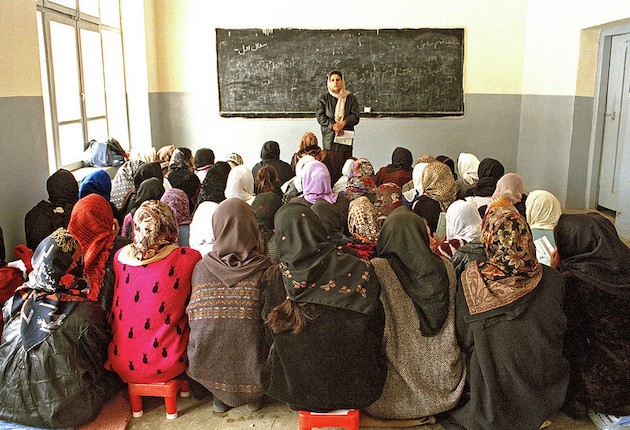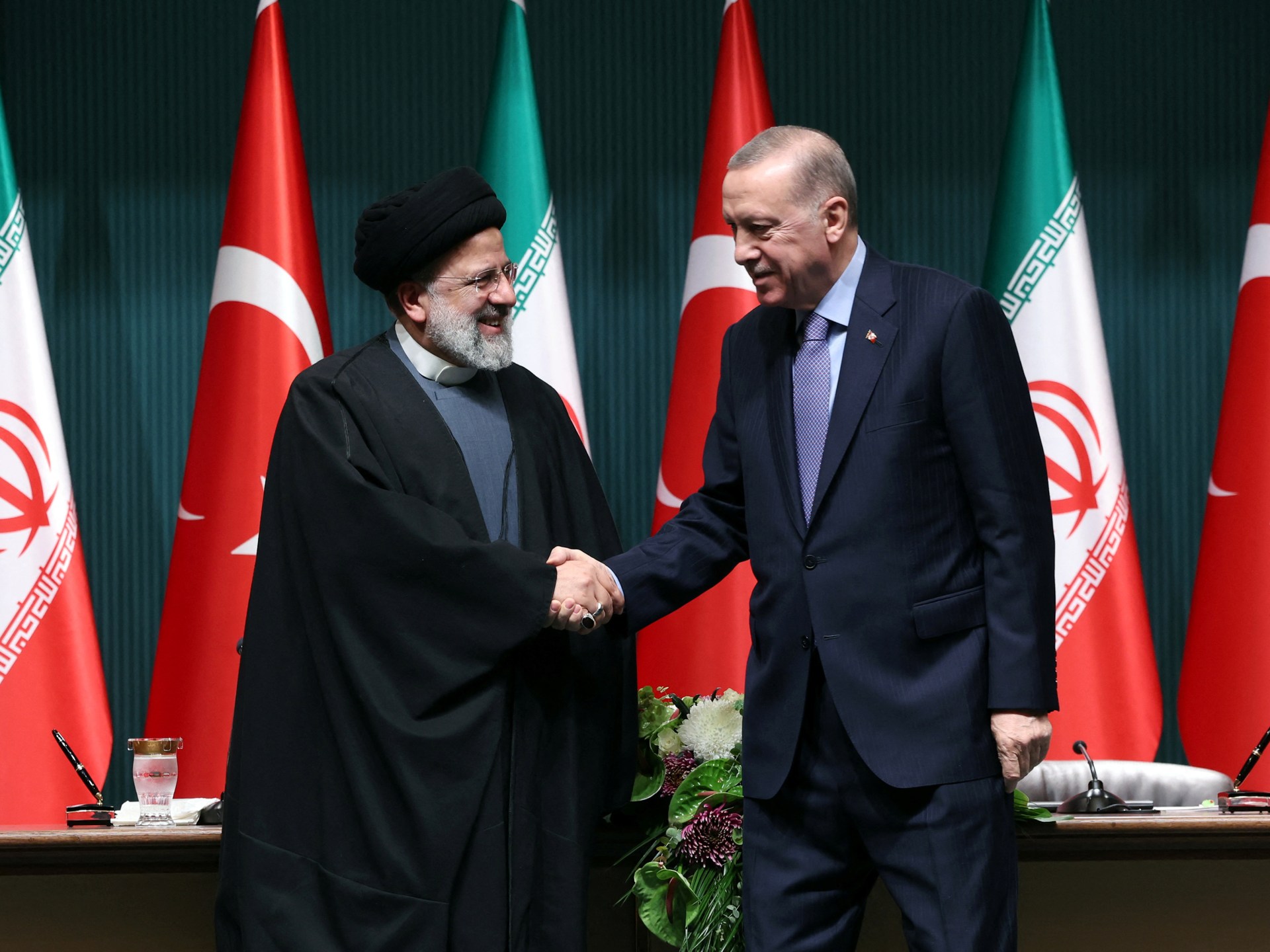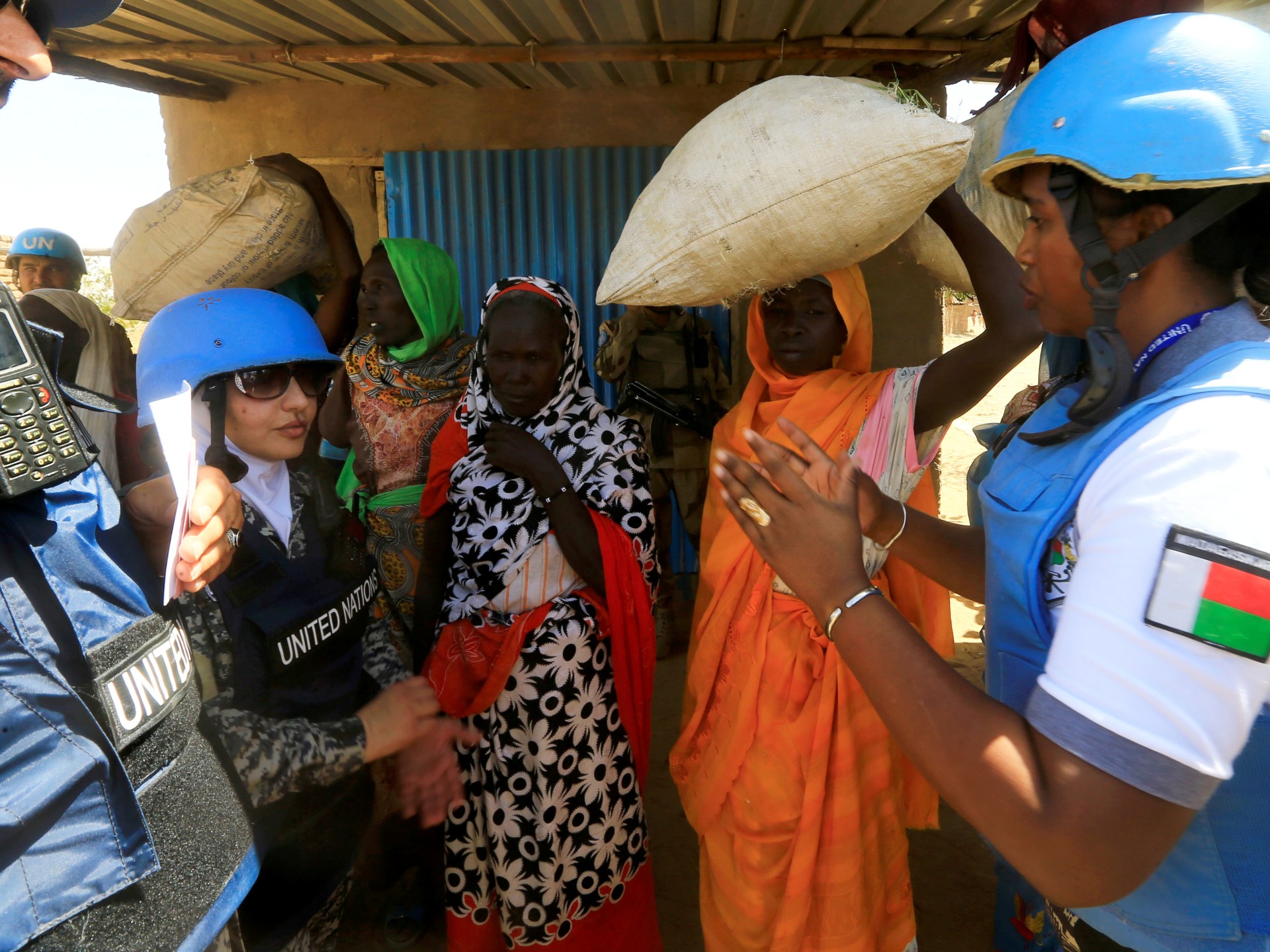How an International Criminal Court Investigation Could Expand Human Rights — Global Issues
UNITED NATIONS, Sep 18 (IPS) – Two years have passed since the Taliban re-assumed power in Afghanistan, and women and girls have yet to return to work or school. Can the international justice system now come to their defense? Experts say a case for Afghan women and girls has the potential to change the way the legal community thinks about human rights abuses. Will it?
Crimes Against Humanity
Gordon Brown, the United Nations special envoy for global education, says Taliban leaders should be prosecuted by the International Criminal Court (ICC) for denying Afghan women and girls education and employment.
“Afghan girls and Afghan women … have been fighting the most egregious, vicious, and indefensible violation of women’s rights and girl’s rights in the world today,” Brown told journalists in August.
Such acts constitute crimes against humanity if they meet the ICC’s definitions set forth in Article 7 of the Rome Statute. The acts must be part of a “widespread or systematic civilian attack directed against any civilian population.” The charges must also be brought against an individual or group of individuals, like Taliban authorities, who had knowledge of and perpetrated the crimes. The Taliban’s policies that specifically target all women and girls provide clear evidence of all these elements, a Human Rights Watch (HRW) report has found.
According to HRW, Taliban authorities are specifically responsible for gender persecution. This persecution has been imposed through spoken and written decrees that have restricted women’s and girls’ movement, expression, employment, and education.
Persecution must also occur in connection with another recognized crime against humanity to be considered by the ICC. HRW’s report cites instances of women who protested discriminatory policies being detained for up to 40 days without communication as evidence of the crime of “imprisonment.”
David Cohen, Director of the Center for Human Rights at Stanford University, adds that the severe restriction of women’s movement might be seen as “imprisonment” itself.
“A creative argument would be that Taliban increasingly confining women to their homes and preventing their free movement… is a severe deprivation of physical liberty,” Cohen said.
Another type of crime is described as “inhumane acts” that cause “great suffering.”
HRW explains that cutting off women and girls from their livelihoods and opportunities for the future has had a “devastating impact on the mental health of many women and girls” would also qualify.
Expanding Notions of Human Rights Law
Under these grounds for investigation, an ICC case for Afghan women and girls could have broader implications.
For one, the case presents an opportunity for the court to move beyond looking at individualized actions and begin looking at broader policies, Tayyiba Bajwa, a clinical supervising attorney in the International Human Rights Law Clinic at the University of California, Berkeley, explains.
“A crime of persecution is a particularly important crime within the ICC’s mandate because it really speaks to systemic discrimination,” HRW’s International Justice Director Elizabeth Evenson said. “We’re talking about actions that are designed to deprive individuals of fundamental rights – in this case by virtue of their gender identity – and so, in a way, it really gets at the worst kinds of discrimination.”
It could also set more precedent for the future. Most ICC cases in the past have focused on crimes like torture, disappearances, and extrajudicial killings. A 2018 case involving forced marriage and sexual violence in Mali was the first in which an ICC prosecutor charged the crime of gender persecution.
However, prosecuting more cases of gender persecution is a priority for ICC Chief Prosecutor Karim Khan, Evenson notes. Khan’s office has released multiple publications on gender-based crimes in the past year, including a policy on the crime of gender persecution.
Kelli Muddell, the director of the gender justice program at the International Center for Transitional Justice, suggests that investigating incidents of gender persecution can help the international community consider new aspects of the law.
“I think the sort of innovative and maybe provocative thing about this case, if it were to go forward, is that it really centers around this expanding of crimes against humanity to look at social, political and economic and civil rights,” Muddell said.
Bajwa also recognized that ICC investigations can be leveraged to impose broader sanctions or restrictions. However, she expressed concern that focusing on the prosecution of Taliban leaders as a means of delivering justice may ignore the responsibility of other powerful actors, especially those in the Global North.
“One of the other real concerns I have about this is that prosecuting an individual from within the Taliban, in isolation, to me, ignores the long history and responsibility of Western countries for how and why the Taliban are in government in the first place,” Bajwa said. “If the ICC is truly to have legitimacy, it needs to stop being so myopic.”
Bajwa encouraged the public in influential countries to put pressure on their governments to take tangible actions, like working to make it impossible for Taliban officials to travel.
This is not the first time an ICC case involving Afghanistan has been considered. In 2021, Khan resumed an investigation of war crimes and crimes against humanity committed by both the Taliban and United States armed forces. Bajwa said she thinks any potential case on behalf of Afghan women and girls would be an expansion of the preexisting investigation, which doesn’t have an end date.
Still, Cohen says the chances of a case going to trial are “slim.” Even if there was a successful investigation, Taliban authorities would have to respond to an arrest warrant and sit for trial. The ICC prohibits trials in absentia.
Regardless, the symbolic value of an investigation alone may be significant enough, especially for victims seeking justice. Many experts agree that even without a conviction, the discussion facilitated by the global spotlight of the ICC can be a useful advocacy tool.
Beyond the ICC
The education envoy also addressed other ways international institutions have tried to support Afghan women and girls beyond the ICC.
There are workarounds to the education bans, like online learning and underground schools. However, these alternatives are another burden on a budget already spread thin. According to Brown, women and girls in Afghanistan fight for their rights while also facing extreme poverty.
Only 23 percent of the required funds for Afghanistan’s humanitarian response plan have been received, with 50 million people failing to receive the aid they need. As more girls flee to neighboring countries like Pakistan, even more funding will be needed to support refugees.
At the same time, Brown has called on individual governments to sanction the Taliban. UN education aid has been suspended until schools are reopened for girls.
Brown said he believed there was a split in the Taliban regime, with some important voices, especially in the Ministry of Education, still in favor of education for all. He encouraged the leaders of Muslim-majority countries to use their position to persuade Taliban leaders to remove bans on girls’ education and women’s employment, which he said “has no basis in the Quran or the Islamic religion.”
International bodies continue to monitor human abuses under other UN treaties ratified by Afghanistan, like the Convention on the Rights of the Child and Women.
“We know that if we allow oppression to go unchallenged in Afghanistan, it could spread to other countries,” Brown warned.
Still, he spoke about the importance of seeing the resilience of Afghan women and girls as a sign of encouragement: “They can close down the schools girls go to, but they cannot close down their minds.”
IPS UN Bureau Report
Follow @IPSNewsUNBureau
Follow IPS News UN Bureau on Instagram
© Inter Press Service (2023) — All Rights ReservedOriginal source: Inter Press Service
Check out our Latest News and Follow us at Facebook
Original Source





